What Is GAGGA
The Global Alliance for Green and Gender Action (GAGGA) is a diverse network of women’s funds, environmental justice funds, NGOs, and women-led community based organizations (CBOs). Led by Fondo Centroamericano de Mujeres (FCAM), with partners Both ENDS and Mama Cash, GAGGA secures women’s rights to water, food security, and a clean, healthy environment.
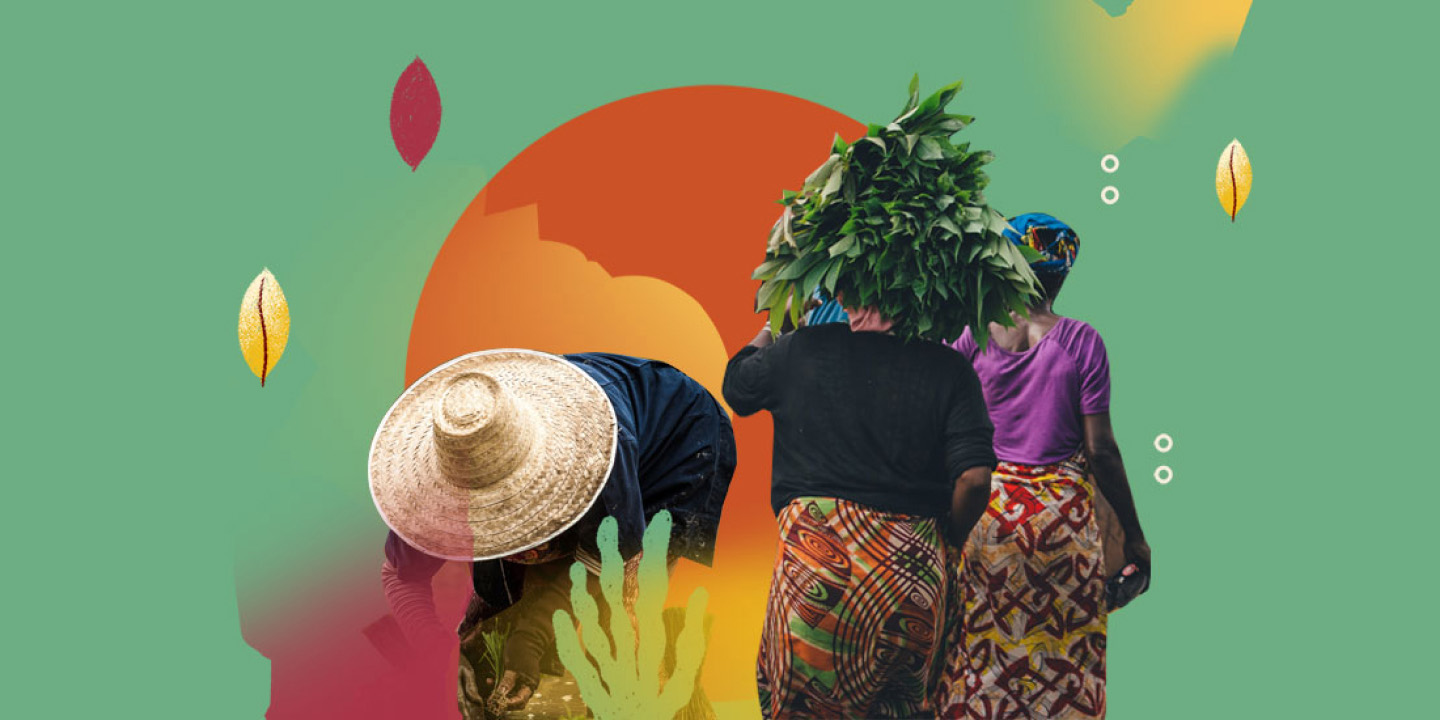



Our Vision
We envision a world with environmentally sustainable and gender-just societies in which people thrive.
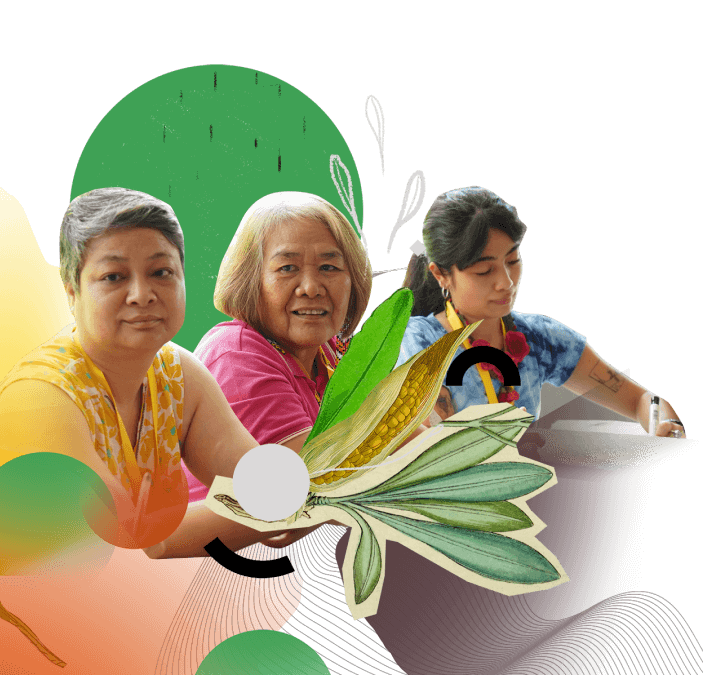

Our Mission
GAGGA sets out to strengthen and unify the capabilities of community based women’s rights and environmental justice groups and movements so that:
-
They have the support and capacities they need to achieve the political agendas they have defined as priorities.
-
Their work is aligned and builds on each other’s strengths.
Our Approach
The Global Alliance for Green and Gender Action (GAGGA) is a diverse network of women’s funds, environmental justice funds, NGOs, and women-led community based organizations (CBOs). Led by Fondo Centroamericano de Mujeres (FCAM), with partners Both ENDS and Mama Cash, GAGGA secures women’s rights to water, food security, and a clean, healthy environment.
-
Women-led Community Based Organizations (CBOs)
-
National, regional and global environmental justice and women’s funds
-
National, regional and global Non-Governmental Organization (NGOs)
Why Environmental Justice and Women’s Funds? Environmental justice and women’s funds are parts of the movements they seek to support and this is their greatest strength. They know the context in which grassroot groups and women-led community based organizations work as they share the same context with them. This means they are well-connected to and have an expert understanding of the needs and opportunities of the communities they serve, and are accountable to them. They also provide grassroots groups with the kind of flexible support and multi-year, patient funding they need to reach sustainable impact. This is why we believe it’s critical to channel resources through these funds.
The GAGGA Alliance operates on a decentralized decision-making structure. It involves Environmental Justice and Women’s Funds, as well as NGOs supporting women-led community based organizations and movements. Together, they develop lobbying and advocacy agendas. The Alliance’s interventions aim to create safe spaces for collaborative strategy and knowledge development. They also focus on mutual capacity-strengthening with community based organizations. This is achieved through ongoing communication, networking, and the facilitation of planning and thematic meetings.
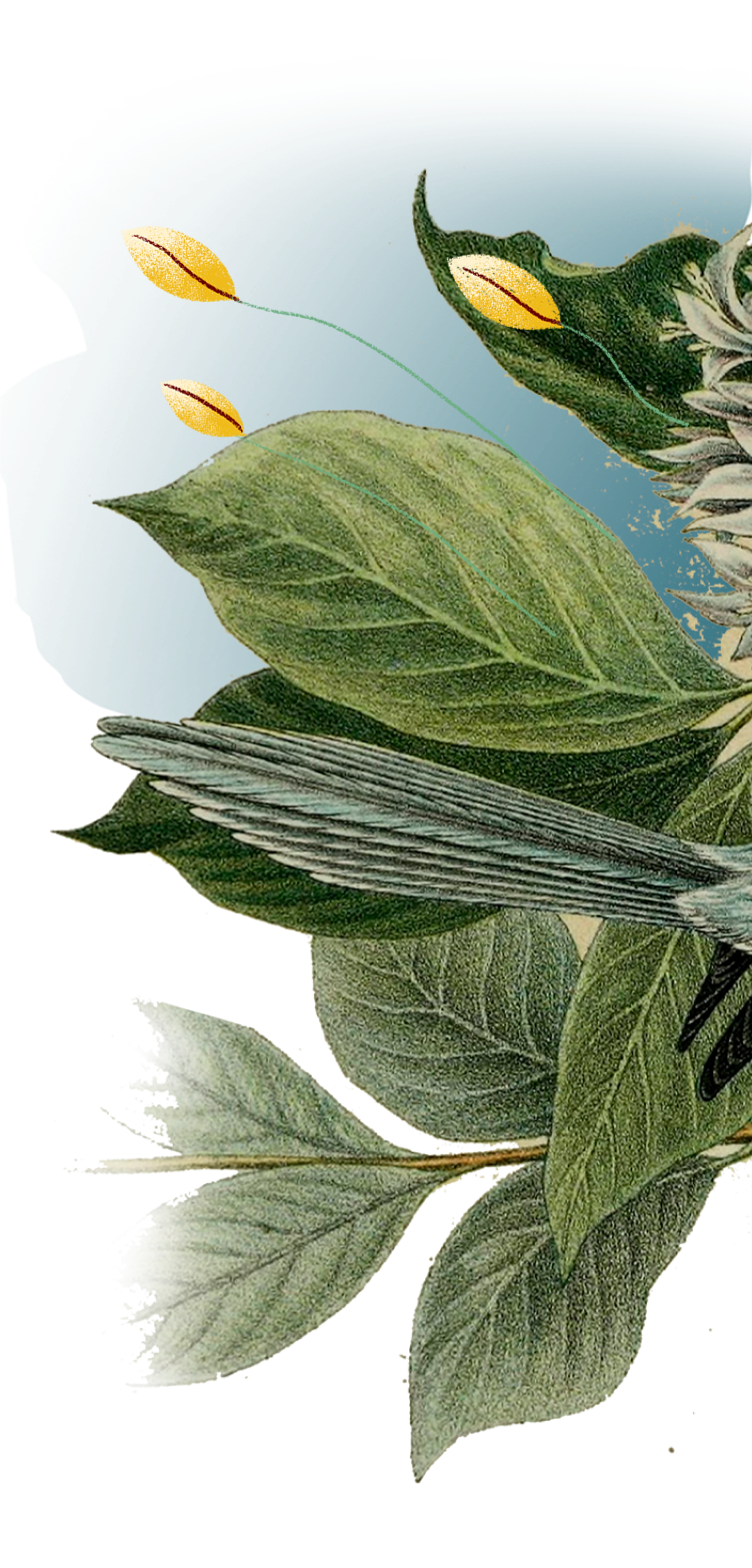
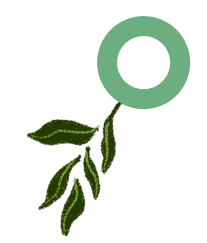

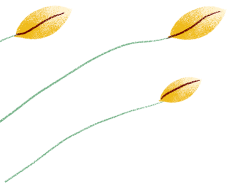

Our Impact
and Milestones
Our Impact
and Milestones

Launch of GAGGA
GAGGA was launched in 2016 (initially as a five-year programme) as a consortium led by the Fondo Centroamericano de Mujeres (FCAM) based in Costa Rica, with partners Both ENDS, a global environmental justice organization, and Mama Cash, a Women’s Fund working internationally, both based in the Netherlands, under the policy framework “Dialogue and Dissent” of the Ministry of Foreign Affairs of the Netherlands (MFA).
Influencing change
In its inception year, the GAGGA members, partners and allies actively influence international financial institutions and the donor community. As an alliance, GAGGA alliance members organized different sessions involving multi-level GAGGA partners in the following spaces:
- EDGE Funders / Global Giving Conference (Berkeley, USA – April 2016)
- Women Deliver Conference (Copenhagen, Denmark – May 2016)
- International Human Rights Founders Group Conference (New York, USA – July 2016)
- AWID Forum (Salvador de Bahia, Brazil – September 2016)
- International Funders for Indigenous People Latin America Conference (Lima, Peru – October 2016)
- Gender and Climate Action Innovation Forum (Marrakesh, Morocco – November 2016)
- UNFCCC 22nd Conference of the Parties (Marrakesh, Morocco – November 2016)
- Global Summit for Community Philanthropy (Johannesburg, South Africa – December 2016)
Redirecting resources
A total of 9 funders provided funding to the intersection of women´s rights and environmental justice as a result of the direct L&A work by GAGGA actors. This amounted to a total funding amount of €924,6171.

Results of the inception year!
Between 2016-2017, the first year of GAGGA’s existance, GAGGA partnered with and support 20 women’s and environmental justice funds, 36 NGOs, and 300 women-led community-based organizations, and provided 3.49 million in 476 grants to mainly women-led community-based organizations through our global network.
Launch of the We Women Are Water Campaign
GAGGA launched its flagship campaign, “We, Women Are Water.” This initiative, spearheaded by GAGGA partners in Latin America, exemplified GAGGA’s innovative efforts to highlight the vital intersection of gender justice and water justice. The campaign not only underscores the crucial role women play in water stewardship but also aims to build bridges across various movements, fostering collaboration and amplifying the voices of women in environmental advocacy.

Organizing first global covening
GAGGA hosted the 2018 Global Convening, bringing together 50 representatives of partner organizations from across the globe, which inlcuded women’s and environmental justice funds, NGOs, and women-led community-based organizations. This was a space to share and build on GAGGA’s Mid Term Review findings, partners’ cases and experiences, and for collective learning.
2018 in Numbers
GAGGA collaborated with 14 women´s funds, six environmental justice funds and 43 NGOs, and 364 grassroots groups in over 30 countries, and provided a total of €4.7 million in funding support.
Facilitation, Organization, and Participation
GAGGA organized 12 regional meetings and one global meeting; ensured GAGGA representation and participation in three international advocacy spaces – the Thematic Social Forum on Extractives in South Africa, the Alternative World Water Forum in Brazil and the United National Business Human Rights Forum in Geneva, and held two debates together with the Ministry of Foreign Affairs of the Netherlands – one on Women and Mining and the other on Women´s Lands Rights.

2019 in Numbers
GAGGA collaborated with 14 women’s funds (including FCAM and Mama Cash), five environmental justice funds, 44 NGOs (including Both ENDS), and 418 grassroots groups in over 30 countries and provided a total of €5.2 million in funding support.
Action at Conference of Parties (COP25)
GAGGA hosts 5 Side Events at the 25th Conference of the Parties (COP 25) of the United Nations Framework Convention on Climate Change (UNFCCCC) which focused on cross-movement feminist organising, the role of young women in local climate adaptation solutions, the access to and importance of Green Climate Fund funding for local women-led organisations, and the effects of extractive industries on women and women’s health in particular.
First Women and Rivers Congress
GAGGA participated in the first Women and Rivers Congress, organized by International Rivers in collaboration with the Nepal Water Conservation Foundation where GAGGA had a strong and diverse representation in the congress, with around 20 participants coming from different countries (El Salvador, Colombia, Bolivia, Mozambique, Kenya, Nigeria, DRC, Zimbabwe, Indonesia, India, and Nepal), bringing their vast knowledge and experiences into this space.
Influencing Change
GAGGA, together with other organisations and Strategic Partnerships, actively engaged and provided detailed recommendations to the Dutch Ministry of Foreign Affairs subsidy framework Power of Voices and SDG5, amongst others to ensure that gender equality is both a cross-cutting and a stand-alone theme.

2020 in Numbers
GAGGA was able to provide financial and non-financial support to 426 grassroots groups across Africa, Asia, Europe (Georgia) and Latin America. 79% of these groups (336 of 426 groups) received in total €2,2 million in grants from national, regional and international women’s and environmental justice funds as well as some NGOs. The remaining 21 percent (90 of 426 groups) received non-financial support exclusively.
Launch of the Women Leading Climate Action Program
GAGGA developed the “Women Leading Climate Action” program and was selcted to be a Strategic Partnership of the Dutch Ministry of Foreign Affairs, the Netherlands, under the “Power of Voices” policy framewor – 2020-2025, to continue its work strengthening and supporting women’s leadership and action in environmental and climate work.
GAGGA Voices on COVID19
Through our close relations with funds and NGOs, GAGGA collected 60 recordings from partners in Africa, Asia and Latin America, in which grassroots groups share their lived realities during the first months of the pandemic. The audio stories focused on three overarching issues: Alternative Economies; Food Sovereignty and Human Rights, and exemplified how women lead in times of crisis.
Launch of the Autonomy and Resilience Fund (ARF)
GAGGA launched the Autonomy and Resilience Fund (ARF) – a one-time funding initiative aimed to address the urgent needs of women environmental defenders and their communities through the strengthening of community-driven systems of resilience and autonomy that are based on principles of equity, solidarity, and collective care for people and nature. The structure of the GAGGA network – and the relationships and trust it facilitates with partner funds and NGOs– proved crucial to the success of the ARF. In a period of just six weeks, GAGGA received a total of 221 applications, including 193 from women-led community-based organisations and 18 from GAGGA’s NGO partners. Within a period of three months, GAGGA granted €214,108 to 41 grassroots groups and €40,292 to seven NGOs in 21 countries around the world.
Women, Inclusion and Environmental Roundtable
GAGGA and the Inclusive Green Growth Department of the Dutch Ministry of Foreign Affairs, co-organised the Women, Inclusion and Environmental Roundtable, bringing together 40 representatives from the Canadian, Dutch, German, Swiss and United Kingdom governments working on environmental and climate policymaking, as well as from private foundations from the US and Europe, interested in funding at this intersection. This was a space for peer-to-peer exchange and learning on key practices, opportunities and challenges related to resourcing gender, environment and climate justice, building on the key findings of a mapping GAGGA conducted in 2019 on relevant policies, mechanisms, tools and funding channels of five government donors.

2021 in Numbers
GAGGA was able to provide financial and non-financial support to 358 community-based organisations, 28 NGOs, and 24 women’s and environmental justice funds and provided €4.4 million in support to GAGGA network partners.
Welcoming new Strategic Allies
GAGGA welcomed two new Strategic Allies to its alliance – Women’s Environment and Development Organization, and 350.org – strenthening its strategic allieship with 4 organization including Prospera and Global Greengrants Fund.
Sustainable Solutions – Centering Gender Equality in Climate Action
GAGGA, together with our strategic allies Global Greengrants Fund, Prospera and WEDO, co-organised the Virtual Series: ‘Sustainable Solutions – Centering Gender Equality in Climate Action’, a four-part series bringing together more than 30 representatives from different government donors and European private foundations to collectively discuss: the importance of supporting and resourcing women leading climate action; the challenges in supporting action for gender equality, environment and climate; results and lessons learned from funders who are already supporting this work; and the key moments, spaces and processes for government actors and private foundations to commit to transformative gender and climate action.
The Autonomy and Resilience Fund: Transforming fear into hope
GAGGA launched the “The Autonomy and Resilience Fund: Transforming fear into hope” publication as a conclusion to its one-time funding initiative, “Autonomy and Resilience Fund (ARF)” to be used to contribute to the critical discussions about inclusive, flexible, feminist, and community-driven resourcing, in the short and long-term, for gender, environmental and climate justice work.
Generation Equality Forum, Commitment Campaign
As part of the Feminist Action for Climate Justice Action Coalition, one of the six action coalitions of the Generation Equality Forum, GAGGA and Global Greengrants Fund launched a commitment campaign to mobilise at least $100 million for feminist action for climate justice over the next five years. The campaign includes a commitment to flexible, multi-year support to organisations led by women, girls, and trans, non-binary and intersex people, working on the frontlines of climate action.
Structural violence: Learning from women and girl environmental defenders
As part of the Ford Foundation Natural Resources & Resilient Women Initiative, GAGGA completed a mapping and consultation process to better understand how community-based women- and girl-led groups, collectives and organisations defending their land, territories, and natural resources in the Global South define structural violence and their strategies to prevent and respond to it. This mapping led to the report publication, “Structural violence: Learning from women and girl environmental defenders” targeting donors on the importance of supporting women, girls, trans, intersex and non-binary environmental defenders.

2022 in Numbers
GAGGA was able to provide financial and non-financial support to 440 community-based organisations, 31 NGOs, and 24 women’s and environmental justice funds in 28 countries and provided €4.9 million in support to GAGGA network partners.
Commission on the Status of Women (CSW66)
GAGGA co-organised five sessions at the Commission on the Status of Women (CSW66). GAGGA held to the principle that at least 75% of panellists in each session would be representatives from GAGGA partners. In all of these sessions, the importance of increased support for women-led climate action and gender-just climate solutions was underscored.

2023 in Numbers
GAGGA was able to provide financial and non-financial support to 361 community-based organisations, 31 NGOs, and 24 women’s and environmental justice funds in 28 countries and provided €4.62 million in support to GAGGA network partners.
Mid-Term Review Process
GAGGA embarked on its Mid-Term Review of our 5-year “Women Leading Climate Action” programme supported by the Dutch government, marking a significant milestone in our journey. Over the past 2.5 years, GAGGA has worked towards supporting women in driving climate action worldwide and advocating towards donors, policy makers and investors to take decisive action. This was a time to take a collective pause, reflect on and evaluate our achievements, challenges, and lessons learned thus far. As we fostered an environment of collaboration and knowledge sharing, many rich insights and valuable lessons emerged from these engaging review sessions. Between June – August, we organizing three regional meetings in Africa, Asia, and Latin America respectively, and a global meeting in Europe in early September. We value the active participation of our partners and stakeholders in this reflective journey.
Strategic Partnership with the Global Affairs Canada
GAGGA built a Strategic Partnership with the Global Affairs Canada under GAGGA’s “Women Leading Climate Action” program to support gender-just climate action. Under this partnership, between 100 and 150 community-based organizations from Africa, Asia, Europe, Latin America and the Pacific working at the nexus of gender, climate, and environmental justice receive Can$11 million from Global Affairs Canada for the next 3.5 years as part of the Global Alliance for Green and Gender Action (GAGGA) initiative to support small and medium organizations for global climate action and innovation.
We Women Are Water Campaign, 2023
GAGGA launched its first We Women Are Water campaign that presented the stories of gender just climate solutions from the GAGGA network for the first time in video format in English, pish, French, and Portuguese, and were narrated by women from the affected communities themselves, to raise awareness on the action of women and their communities around the globe to protect their ecosystems against false climate solutions that destroy their territories while leading gender-just climate and water solutions.
UN Water Conference
In close cooperation with the Dutch Ministry of Foreign Affairs,, GAGGA organised sessions at the UN Water Conference, including the side-event ‘Making finance for gender-just water and climate solutions a reality!’, co-hosted by the Government of Chile, and Women Engage in a Common Future (WECF). The event was designed to influence other stakeholders to commit to support, finance, and promote locally rooted, gender-just climate and water solutions within the Water Action Agenda. The event featured inspiring examples of solutions presented by GAGGA partner WEHRDs from Nepal, Kenya, Paraguay, Mexico, and Nigeria. It included an interactive dialogue with government representatives and philanthropic donors on the best ways to support and resource gender-just water and climate solutions.
Global Convening in the lead up to COP28
In preparation for COP28, GAGGA organzied a conveining of 55 GAGGA partners from more than 28 countries met at the beginning of September in Amsterdam to discuss successful solutions against climate change, and strategise about the (gender) just energy transition, increasing access to the Green Climate Fund and advocacy strategies for the COP28. The partners included women’s funds, environmental justice funds, NGOs and CBOs, who are leading efforts to adapt to climate change, prevent further greenhouse gas emissions and resist false climate solutions worldwide.
Joining re:arc institute’s 2023 cohort
GAGGA was selected as a member of the re:arc institute‘s 2023 Cohort! This membership is more than just an affiliation—it signifies our collective commitment to envisioning and forging innovative pathways against the pressing climate challenges of our time. Our collaboration with re:arc marks a pivotal chapter in our journey as 2023 stands as the institute’s inaugural year dedicated to catalyzing new directions for architectures of planetary well-being. Teaming up with the re:arc institute provides a strengthened platform to amplify our mission and support further impactful solutions coming from all across the globe. Founded in 2022, re:arc institute is a philanthropic association based in Copenhagen, Denmark, operating without geographical limitations. The institute provides direct donations to an annual cohort of nonprofit organizations, as well as commissioned resources to people and practices experimenting with diverse approaches that support architectures of planetary well-being.
GAGGA at COP28
GAGGA collaborated with partners Fundo Casa Socioambiental and Non-Timber Forest Products – Exchange Program (NTFP-EP) to organise an official side event, ‘Gender- just Climate Policy & Finance: From Barriers to Actionable Solutions’ on ensuring gender-just climate policy and finance for women-led CBOs. Representatives of local CBOs and NGO shared how they implement gender-just climate solutions, and the current obstacles they face to access finance and meaningfully engage in decision- making processes. An interactive panel included representatives from the Dutch, Canadian and UK governments: the Director of IGG, MFA; Director of Climate Finance of Global Affairs Canada; and the Head of Gender at FCDO (UK Development Agency).
Launch of the Roots Rising Campaign
GAGGA and GGF co-hosted an event at the COP to introduce our collaborative campaign, “Roots Rising,” which emerged from the UN Generation Equality Forum’s Feminist Climate Action Coalition, to mobilise resources for transformative, gender-just climate action, from governments and philanthropy. Led by GAGGA, GGF and WEDO, the ‘Roots Rising – Growing Grassroots Gender-Just Climate Action’ campaign aims to mobilise at least $100 million of new funding for gender-just climate action by 2026, and significantly more by 2030. The UK, Scottland and the Netherlands committed to be champions of the campaign during the event.

The GAGGA Gender just climate solution Interactive Map
GAGGA launched an interactive map which showcases close to a 100 gender just climate solutions developed and innovated by the GAGGA partners from all across the world on various thematic areas falling at the intersection of gender, climate, and environmental justice. These solutions highlight that the solutions to the climate crisis already exist and are being led by women, girls, trans, intersex, and non-binary people all over the world.
GAGGA at CSW68 and the We Women Are Water Campaign
At the United Nations Commission on the Status of Women (CSW68), GAGGA, in co-sponsorship with Global Affairs Canada, hosted a pivotal side event addressing the intersection of climate and gender justice, focusing on financing mechanisms for gender-just climate solutions. During this event, Women Environmental Human Rights Defenders shared their experiences with false climate solutions and extractive activities, highlighting the need for increased investment in locally-led gender-just climate actions. Funders, including women’s funds, bilateral, and philanthropic funders, discussed their experiences and the challenges and ambitions of current climate finance mechanisms. The event brought together funders, including women’s funds, bilateral, and philanthropic organizations, who discussed their experiences in funding gender-just climate action. They addressed the ambitions and limitations of current climate finance mechanisms and shared best practices for effectively supporting grassroots movements. This dialogue provided a comprehensive understanding of the funding landscape and identified opportunities for enhancing the impact of climate finance. A significant highlight of the event was the launch of the We Women Are Water campaign for 2024. This campaign emphasizes the transformative power of gender just climate solutions and aims to amplify the voices and efforts of women, girls, non-binary, intersex, and trans people from local and Indigenous communities. The campaign showcases stories of innovative solutions that address the root causes of climate injustice while promoting sustainable and inclusive development.
The full event, including the launch of the We Women Are Water campaign, can be watched here. For more information on the campaign, visit We Women Are Water 2024 CSW68 Campaign.
Irish Aid Partnership
GAGGA formed a strategic partnership with Irish Aid, the Government of Ireland’s development cooperation programme. The programme works with partners around the world to tackle poverty, hunger and humanitarian need in over 130 countries. This partnerhsip was developed to further our mission of supporting gender just climate solutions. The project will engage partner organizations in each region GAGGA is active in to provide grants and support to women-led community based organizations.
Partnership with the Foreign, Commonwealth & Development Office (FCDO)
GAGGA established a strategic partnership with the Foreign, Commonwealth & Development Office (FCDO) to enhance our efforts in supporting Women Environmental Human Rights Defenders (WEHRDs) and advancing gender just climate solutions. Since 2016, GAGGA has been actively funding and accompanying WEHRDs in their advocacy, security, and resilience initiatives. This partnership with FCDO will allow us to build on our previous work and delve deeper into the nexus of conflict, gender injustice, and climate change. Grnats under this partnership will support women-led community based organziations and non-governmental organizations work in addressing the intersecting challenges of conflict, gender, and climate, forming the basis for an in-depth case study analysis. The early outcomes of this analysis are expected to be showcased during a co-hosted side event with the UK Delegation at COP29 in Azerbaijan.

Frequently asked questions
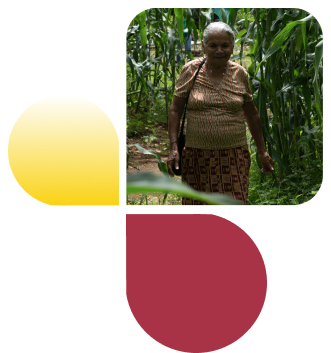
The Global Alliance for Green and Gender Action (GAGGA) is the first-ever multi-actor network that is harnessing the collective power of women’s funds, environmental justice funds, non-governmental organisations (NGOs), and women-led community-based organisations (CBOs) that join forces from local to international levels to secure women’s rights to water, food security, and to a clean, healthy, and safe environment. The GAGGA Members are led by Fondo Centroamericano de Mujeres (FCAM), a women’s fund based in Central America, with partners Both ENDS, a global environmental and climate justice NGO, and Mama Cash, a women’s fund working internationally.
GAGGA works to strengthen the nexus of women’s rights, environmental and climate justice at local, national, and regional levels and collaborates with and provides funding support to national, regional and global women´s rights and environmental justice funds and organisations in more than 30 countries across Africa, Asia, Europe (Georgia), Latin America and the Pacific and prioritises support to groups who are working at the local level and have limited access to funding.
Learn more about our approach here.
Alliance Members
GAGGA is a multi-actor network, active since 2016. Led by the Fondo Centroamericano de Mujeres (FCAM) in close collaboration with Both ENDS and Mama Cash, these three GAGGA Alliance Members have forged a strategic political and operational alliance that has mobilised a strong network of diverse actors to carry out direct lobbying and advocacy for sustainable, gender just climate action.
GAGGA Partners
Funds: Women’s funds support grassroots organizations financially, enabling them to pursue their advocacy and action plans.
- NGOs: Non-governmental organizations provide technical assistance, capacity building, and strategic guidance.
- CBOs: Community-based organizations are at the forefront of implementing gender just climate solutions, utilizing local knowledge and leadership to drive initiatives.
- Funds, NGOs, and CBOs share mutual rights and responsibilities, playing significant roles in GAGGA’s decision-making processes. They contribute to setting the agenda for GAGGA’s movement-strengthening, linking, and advocacy strategies.
Strategic Allies:
GAGGA partners with WEDO, 350.org, Global Greengrants Fund (GGF) and Prospera – International Network of Women Funds, as strategic allies. Each ally brings unique expertise—ranging from women’s rights advocacy and grassroots environmental funding to global climate action and feminist philanthropy. This collective knowledge and expertise amplify GAGGA’s impact, ensuring a comprehensive and impactful approach.
Coordination Unit:
The Coordination Unit supports Alliance Members and Strategic Allies in ensuring alignment, collective decision making and implementation of GAGGA’s programme, specifically across its three strategies (Strengthening, Linking and Influencing). Led by an Alliance Coordinator, the team currently consists of a PMEL Officer, Donor Engagement Officer, Operations and Finance Officer, Communications Strategist, and Programme Assistant.
From an operational perspective, the GAGGA Alliance is based on a decentralised decision-making structure, with Funds and NGOs supporting women-led community based organizations and movements to jointly develop lobbying and advocacy agendas. Its interventions aim to ensure safe spaces for collaborative strategy and knowledge development and mutual capacity-strengthening with community based organizations through ongoing communication, networking, and the facilitation of planning and thematic meetings.
Learn more about our approach here.
GAGGA’s work is made possible through the generous support of strategic partnerships and donors committed to advancing gender just climate solutions. Our primary sources of funding include:
- Institutional Donors: GAGGA receives significant financial support from institutional donors, information of which can be seen in the “Donors” section. These partnerships are crucial in providing the necessary resources to implement our programs and initiatives effectively.
- Foundations and Philanthropic Organizations: Foundations dedicated to environmental justice, gender equality, and sustainable development play a vital role in funding GAGGA’s activities. Their contributions help us sustain our operations, support grassroots organizations, and drive advocacy efforts.
There are numerous ways to support GAGGA and contribute to our mission of advancing gender, climate, and environmental justice.
- Follow our Quarterly Newsletter: Keep updated with what is happening within and beyond the GAGGA network around gender, climate, and environmental justice by following our Newsletter. All our Newsletters are published on our website in English, Portuguese, Spanish, and French.
- Work with GAGGA: If you have skills in research, design, photography, translation, or interpretation, consider joining our roster for future consultancy opportunities or job openings. Keep an eye on our website and social media for announcements.
- Media Requests: Journalists and media houses interested in covering GAGGA’s work or connecting with our partners for stories can reach out to us for interviews, information, and resources.
- Research/Student Requests: If you are a student or researcher, we encourage you to explore our extensive resources on the GAGGA website, follow our newsletter, and engage with our social media channels. We are also happy to facilitate connections with our alliance members for specific research interests.
- Amplify Our Work: Engage with and amplify our mission by sharing our stories, reports, and calls to action of redirecting climate finance towards gender just climate solutions led by women, girls, trans, intersex, and non-binary people.
- Funding and Donations: Interested in supporting GAGGA financially to help sustain and expand our initiatives? Your contributions can drive impactful change and support grassroots organizations working on the frontlines of climate justice. While GAGGA does not accept individual donations at the moment, if you are an institutional or philathropic funder/donor, reach out to us at n.grutter@fondocentroamericano.org
The Global Alliance for Green and Gender Action (GAGGA) is a coalition of diverse actors, including women’s funds, environmental justice funds, non-governmental organizations (NGOs), and community-based organizations (CBOs). Hence, it is not an NGO, but an alliance. Together, these partners work collaboratively to advocate for and implement gender just climate solutions. The alliance structure allows GAGGA to leverage the strengths and expertise of its members, fostering a comprehensive and impactful approach to addressing global gender, climate, and environmental justice issues.
Language matters. As movements, it’s vital to uphold the frameworks we collectively develop and give meaning to. When we use the term “gender just” in relation to climate action—whether it’s gender just climate finance, climate action, or climate solutions—we are talking about more than just including women. We are speaking beyond the binary, challenging power relations, and advocating for actions that respond and transform.
WEDO, in its 2021-2025 strategic plan, defines gender just climate solutions as those that “Encompass a range of activities that aim to address climate change mitigation, adaptation, loss and damage or overall resilience while also supporting the systemic redistribution of power and providing opportunities and access for people of all genders. In particular, ensuring that activities do not reinforce harmful gendered norms. For example, projects that engage women as beneficiaries in relation to agricultural management but do not address women’s legal rights/access to and ownership of land.”
GAGGA adheres to this definition and enriches it with the extensive experience of GAGGA partners. They speak of comprehensive approaches to addressing climate change that challenge and transform existing power dynamics, ensuring equitable opportunities and access for people of all genders. These solutions go beyond simply including women; they actively work to dismantle harmful gender norms, redistribute power, and work towards systemic change.
GAGGA’s understanding of women is inclusive and expansive. It encompasses not only cisgender women but also girls, trans, and intersex people. Furthermore, GAGGA recognizes the critical contributions and importance of non-binary, agender, and all gender-diverse individuals and leaders within the movement. Our belief transcends traditional gender binaries and heteronormative definitions, acknowledging and celebrating the diverse spectrum of gender identities that drive gender just climate action toward gender just climate solutions.
We appreciate your enthusiasm to work at the intersection of gender, climate, and environmental justice. Here are a few ways you can stay connected:
- Follow our Quarterly Newsletter: Keep updated with what is happening within and beyond the GAGGA network around gender, climate, and environmental justice by following our Newsletter. All our Newsletters are published on our website in English, Portuguese, Spanish, and French.
- Follow us on Social Media: You can keep an eye out for updates, read stories of resistance, and amplify our call for redirecting climate finance from false solutions and dangerous distractions toward gender just climate solutions being developed by women, girls, trans, intersex, and non-binary people by following us on X, Instagram, LinkedIn, and YouTube.
- Check out our Annual Narrative Report: Want to understand more about our work? Feel free to read our Annual Narrative Report and learn about our alliance.
We welcome collaborations with individuals and organizations passionate about advancing gender, climate, and environmental justice. To discuss potential projects or initiatives, please write to GAGGA’s Alliance Coordinator, Noemi Grutter at n.grutter@fondocentroamericano.org. We look forward to exploring ways we can work together to drive impactful change.
GAGGA’s grants and funding are channeled through its alliance members and partner funds. Therefore, you cannot apply directly to GAGGA for funding. However, you can reach out to our alliance members—Fondo Centroamericano de Mujeres (FCAM), Both ENDS, and Mama Cash—or keep an eye out for their calls for grants. This decentralized approach ensures that funding decisions are made closer to the ground, leveraging the expertise and local knowledge of our alliance members. By distributing funds through well-established and trusted partners, GAGGA can better address the specific needs and contexts of various communities. This method promotes a more inclusive, participatory, and effective allocation of resources, ensuring that those who are most affected by climate change and gender injustice are empowered to lead and implement solutions. Learn more about our approach here.
GAGGA does not directly take in member organizations. Instead, membership and collaboration opportunities are channeled through our alliance members and partner funds. If you are interested in becoming part of the GAGGA network, you can reach out to our alliance members—Fondo Centroamericano de Mujeres (FCAM), Both ENDS, and Mama Cash—or connect through partner funds. This approach ensures that partnerships are built on established relationships and localized expertise, fostering a more cohesive and effective alliance.
Currently, GAGGA does not have an internship/volunteer program. However, if you are interested in working with GAGGA in the future, please upload your CV in our Roaster. As GAGGA continues to grow, we may be looking for new colleagues to join our team. All our open positions are posted here, but you can register in the roster in case you are interested in working with us but don’t see any open positions that match your profile. Our roster is open for individuals who are interested in:
- Consultancy opportunities (researcher, designer, photographer, translator, interpreter, facilitator etc)
- Future job openings
Interested in supporting GAGGA financially to help sustain and expand our initiatives? Your contributions can drive impactful change and support grassroots organizations working on the frontlines of climate justice. While GAGGA does not accept individual donations at the moment, if you are an institutional or philathropic funder/donor, reach out to us at —



